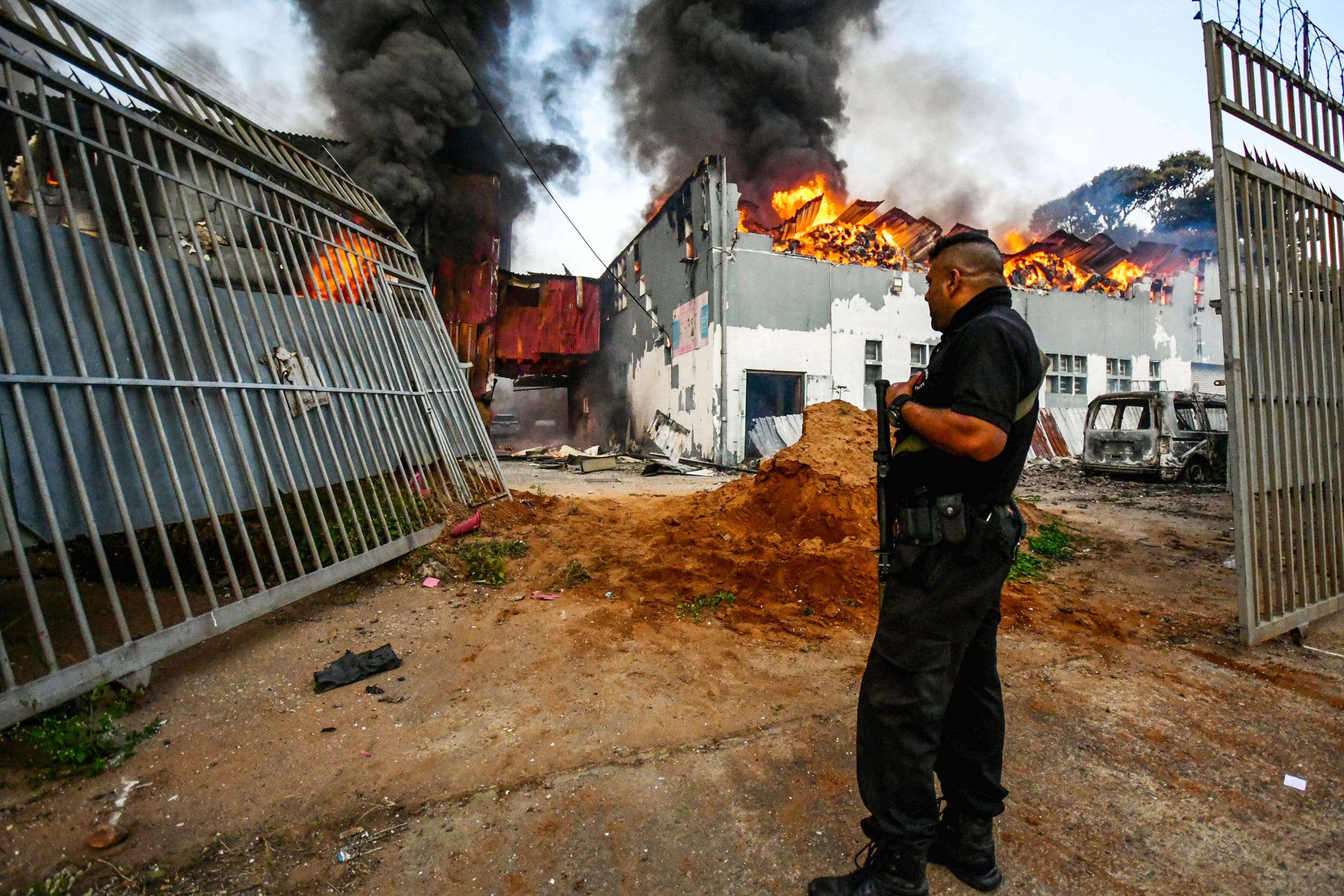President Cyril Ramaphosa deploys the SANDF and calls to restore order in South Africa after looting, vandalism and violence leave 11 dead and many injured.
Just a day after addressing the nation about strengthened Covid-19 lockdown restrictions until July 25, South African president Cyril Ramaphosa was back on TV screens again “with a heavy heart”, this time on the government’s response to the public violence and unrest currently ravaging parts of the country.
The vandalism, looting, riots, “political protests” and “anarchy” over the last three days have led to the army being called in to “protect property and safeguard social and economic infrastructure”, as the president stated in his address on Monday evening, July 12.
“As the Commander-in-Chief of the South African National Defence Force (SANDF), I have today authorized the deployment of Defence Force personnel in support of the operations of the South African Police Service (SAPS).”
The protests, sparked by the arrest of South Africa’s former president Jacob Zuma for contempt of court last week, began in KwaZulu-Natal (KZN), Zuma’s homestead where he is currently incarcerated at the Estcourt Correctional Centre. The civil unrest saw an estimated $7 million in damages with over 30 trucks set alight. The protests continued in Gauteng, South Africa’s economic hub, in places such as Soweto, Jeppetown and Alexandra.
Social media has been agog with dramatic scenes of the state of affairs: videos of people running into shopping centers, malls, and/or shops being destroyed and/or vandalized. Many experts, politicians, and citizens, including the president, questioned if these protests were really under the banner of the #FreeZuma campaign.
“What we are witnessing now are opportunistic acts of criminality, with groups of people instigating chaos merely as a cover for looting and theft,” Ramaphosa said. “There is no grievance, nor any political cause, that can justify the violence and destruction that we have seen in parts of KwaZulu-Natal and Gauteng.”
So far, over 11 people have been declared dead due to the unrest; 166 suspects have been arrested in KZN and 323 suspects arrested in Gauteng concerning these incidents.
“Many South Africans are at this hour counting the cost to their livelihoods and property, to their shops and businesses, to their safety and security. Many more South Africans are feeling anxious and afraid,” Ramaphosa added in his address.
“This means that our sick cannot get medication from pharmacies, food does not reach supermarket shelves, and health workers cannot go to work.”
The incidents of the last few days have disrupted the country’s ongoing Covid-19 vaccination drive that had been gathering momentum.
With the number of Covid-19 cases still surging, the cost of these protests on the economy may be dire.
Bloomberg reported that South Africa’s rand collapsed to “its weakest level” against the dollar due to the unrest. The rand declined as much as 2% and was 1.7% weaker at 14.4681 per dollar by today heading for its weakest level since April 30.
“The victims of the violence that is unfolding now are the workers, the truck drivers, the business owners, the parents and families of those who have lost their lives, who have done nothing wrong,” Ramaphosa added.
This is a developing story and FORBES AFRICA will provide updates as the story progresses.
